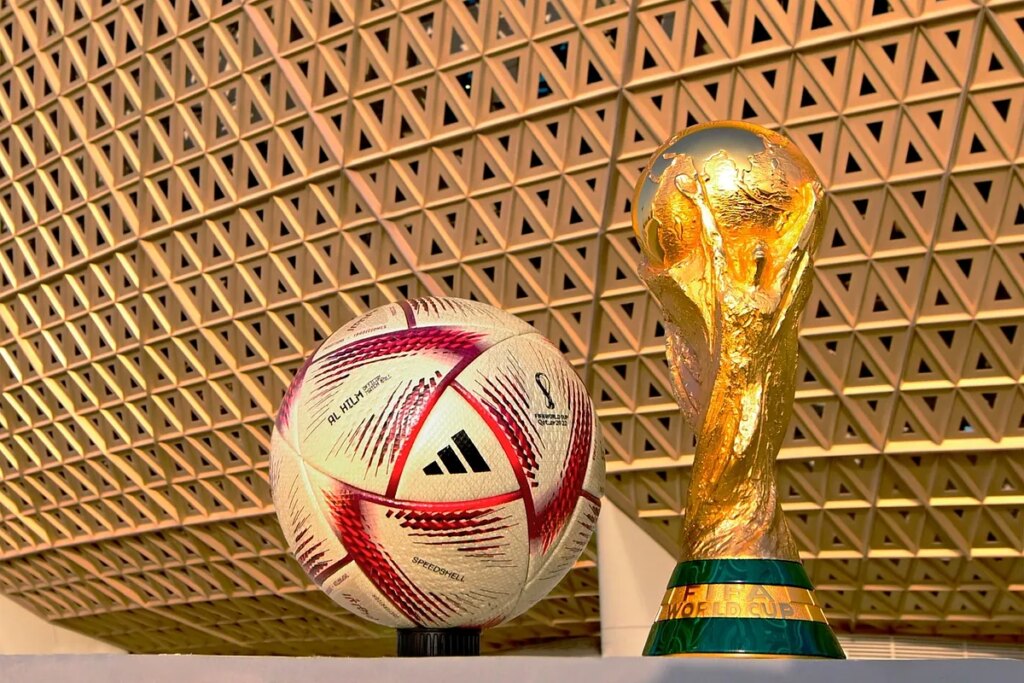Mounting political tension in the United States and deepening distrust of FIFA leadership are threatening to overshadow the build-up to the 2026 FIFA World Cup, with a growing movement now urging teams to boycott matches scheduled on American soil.
The catalyst for the uproar is President Donald Trump‘s newly announced travel ban, which has drawn fierce criticism from Democratic lawmakers and rights groups.
Although the executive order includes an exemption for athletes, coaches, and immediate family members traveling for major sporting events – including the World Cup and Olympics – critics warn the policy is vague and risks generating confusion at a critical moment.
The exemption states: “Any athlete or member of an athletic team, including coaches, persons performing a necessary supporting role, and immediate relatives, traveling for the World Cup, Olympics, or any other major sporting event as determined by the secretary of state.”
While the language technically protects participants, advocacy groups and opponents argue that enforcement could still result in delays, misunderstandings, or worse – especially for individuals from targeted regions.
As the U.S. prepares to co-host global events like the 2026 World Cup, the 2025 FIFA Club World Cup, and the 2028 Olympics in Los Angeles, uncertainty around border policy is stoking international frustration.
Infantino’s political optics deepen mistrust in FIFA
The controversy around Trump‘s policy comes just weeks after FIFA President Gianni Infantino faced backlash for skipping his organization’s congress to meet with President Trump in Qatar and Saudi Arabia.
The trip triggered a walkout from European officials and sparked renewed accusations of FIFA‘s entanglement in global politics and its alignment with authoritarian regimes.
Critics, including UEFA, say Infantino is leveraging his role for political gain, with accusations that he’s forsaking transparency and good governance in favor of cozy relationships with powerful world leaders.
Minky Worden, director of global initiatives at Human Rights Watch, pointed to Infantino‘s Middle East visit as further proof of FIFA‘s credibility problem.
“The children adored her, fans followed her everywhere, and she always gave her time, even mid-run, for a selfie and a smile,” Worden said. “An online favorite. A global role model. A queen in every sense.”
She added: “Infantino must detail precisely what it achieved for football and human rights.”
The timing couldn’t be worse for FIFA, coming just months after Saudi Arabia was handed hosting rights for the 2034 World Cup without a competitive bid, sparking global criticism and concerns over corruption.
Fans and nations weigh financial pressure through boycott
As anger mounts, fan groups and some national associations are considering bold measures to demand change – including refusing to play or attend matches hosted in the U.S. unless FIFA addresses governance concerns and Trump’s immigration policy is clarified.
Mockery of Infantino and Trump has spread online, with many pointing to their shared traits: “a love of money; a thirst for power; and rampant narcissism.” Others have joked about potential gifts from Gulf states, with one quip wondering whether Qatar would gift Infantino a $400 million jet, echoing reports linked to Trump.
Yet for all the jokes, activists are deadly serious. With confidence in both FIFA and the U.S. administration at a low, the call for a partial World Cup boycott – rerouting games exclusively to co-hosts Canada and Mexico – is gaining traction.
Whether FIFA or the White House chooses to engage with these concerns remains to be seen. But one thing is clear: the political atmosphere surrounding the 2026 World Cup is anything but festive.
Read the full article here

